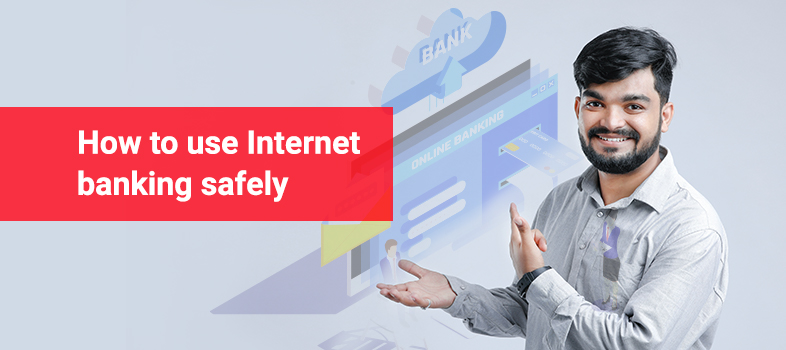Internet banking has made our life incredibly convenient and has been increasingly popular over the past two decades. It’s a smart way to take control of your finances and an easy way to make sure you are keeping up to date with your payments. Most of us now avoid queuing up in bank branches by accessing our accounts directly from computers, tablets or smartphones. Still am very sure most of us have this question in mind that how much it is safe to use online banking facility in our devices. Today we are going to highlight few best practices that we all should follow while using internet banking in our devices.
- Always keep a Strong password – Whenever your bank asks you to keep a customized password always ensure to keep a strong password to access all your accounts. You can choose a password with 8 figures or more. Always use a combination of uppercase, lowercase, numbers and special characters. Try to avoid common words, phrases and stuff that can be found on your social media accounts. Never create a password that contains your name, initials or date of birth. Always change your password in a few months to maintain extra security. Also, you need to select your security questions which are not obvious and should not be found in your social accounts or any public forums. To manage passwords, you can also opt to use software’s like password managers if you struggle to recall them.
- Use Two factor Authentication – Always choose bank accounts which provide you two factor authentication security features to login to your accounts. Every time you try to login they send you an unique code as one time password in SMS or Email which is the only way to access your accounts. This makes it difficult to hack your accounts easily.
- Avoid clicking through emails – Always remember no financial institution will ever send you an email asking for your credentials or any of your personal details. So always avoid such kind of emails as it might can be a phishing attempt to access your details. At the same time avoid clicking on emails from unknown sources and answering to unsolicited calls that seems to be fraud in case someone ask you about your personal details and says they are calling from your bank. Whenever you want to open internet banking, type the URL in the browser and then proceed with the steps and avoid any other URL’s received via email or so.
- Always keep your computer secure and up to date – Security software is very important to keep your system updated from all recent antivirus, malwares and spammers. Need to ensure that your firewall should be on every time you access your internet banking so that your financial data is safe and inaccessible to anyone.
- 5. Access your accounts from secure location – It is utmost important that you connect to your bank accounts only through the networks that you trust and never access them while you access internet in a public network. Always ensure that you access your URL in the address bar using https via encrypted network or connection.
- Always log out when you are finished – This will help you to fall into prey from session hijacking and scripting issues. You might also activate your private browsing mode and clear your cache whenever your session is complete.
- Set up your account notifications – Many banks allow you to set up account notifications whenever there is a login attempt from some other device, any new transactions that happen in your account or your account balance dips to a certain amount. This can help you to track and monitor your bank accounts and protect you from any fraudulent activities.
- Monitor all your accounts regularly – Its always advisable to monitor all your accounts regularly so that you can keep a track of all your transactions that are happening and immediately report in case you detect some fake transaction with your account to the bank so that they can take the required action.
Following these basic rules can keep all your online banking steps free from fraudulent activities so that you can ensure safe and easy internet banking experience.

